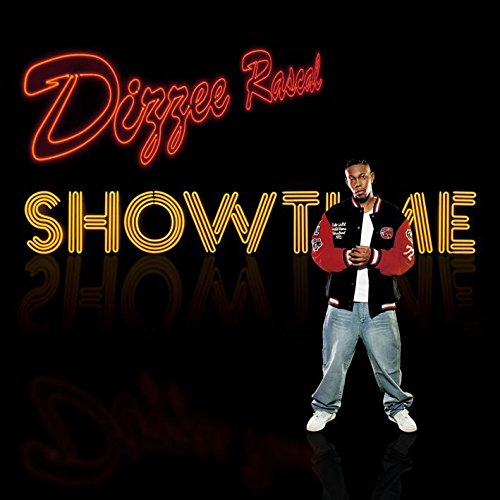
Dizzee Rascal
Showtime
Release Date: Sep 14, 2004
Genre(s): Rap
Record label: Beggars Banquet / XL
Music Critic Score
How the Music Critic Score works
Album Review: Showtime by Dizzee Rascal
Exceptionally Good, Based on 3 Critics
Based on rating 9/10
There are a couple possibly distressing things about Dizzee Rascal's second album, released almost exactly a year after his breakthrough debut. In the wake of the Streets' ambitious A Grand Don't Come for Free, its title -- Showtime -- conjures frights about a concept record strangled by ruminations on newfound fame and all the accompanying trappings. Dizzee being such a product of his environment, as Boy in da Corner conveyed with stark original clarity, it'd be a shame to see the producer/MC stagger down the trodden-flat route of the average lyricist who has tasted a smidgen of glory, real or make-believe: how many people crave another slew of verses about gold-digging women and crew members who have morphed into greedy coattail riders? This paranoia is compounded by pre-release rumors of Dizzee American-izing his sound, sacrificing individuality for the sake of widespread appeal.
Based on rating 4/5
Everyone complains about their job sometimes, but only musicians enjoy the privilege of charging people to hear them do so. Nowhere is this expensive grumbling more institutionalised than rap. An MC's debut album is often fuelled by a lifetime of poverty and frustration, so sudden success creates a lyrical quandary. Unless one deftly sidesteps the issue, as the Streets did, by recording the follow-up in the persona of a cash-strapped everyman, there are only two options: embrace success or rail against it.
Opinion: Average
Besides being an indulgent smattering of celebrity posing and panache, this year’s MTV Video Music Awards was a boutique of the trends that are currently capturing the eyes, ears, and, most of all, the wallets of the average post-adolescent American. During the live transcript of the VMAs, it was apparent that Atlanta-based crooner Usher was, without a doubt, the man, thanks to the multiplatinum sales of his new disk, Confessions, and the success of his video “Yeah!,” a fresh shank of R&B deep-fried in a batter of hip-hop synths and handclaps. For all of the song’s success, “Yeah!” was more than just a catchy dance routine, however.

